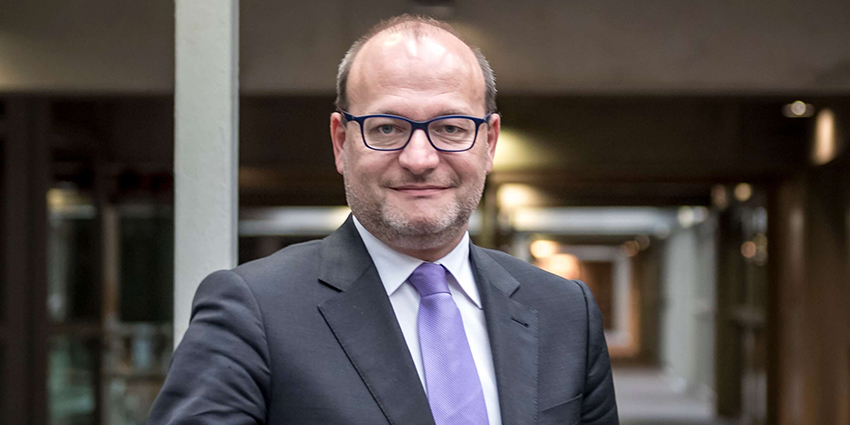
Rémy Rioux, CEO, Groupe Agence française de développement
[French Development Agency]
A historical partner, the Agence française de développement (AFD) [French Development Agency] has been supporting the Foundation’s activities for over 10 years. Its CEO, Rémy Rioux, shares with us his vision on the impact of the economic and health crisis generated by the Covid-19 pandemic on the African continent and his assessment of the partnership with the Foundation.
— What were the main impacts of the pandemic on the African continent in your opinion and how did the AFD respond to this crisis? What were your key areas of response?
R R: Africa experienced an unprecedented shock in 2020, which, I would like to stress, was totally external to the continent. The continent appeared quite resilient in terms of health, but less so on the economic front. An unprecedented recession, averaging 2.6%, affected more than forty countries simultaneously. Beyond the cyclical impact, the crisis above all raises concerns about a deep weakening of economies and societies.
The Agence française de développement Group (AFD) mobilized very quickly to support its partners. In terms of health, with a €1.2 billion “Common Health initiative”, half of which in Africa, for some fifty projects and nearly €130 million in donations; and on the economic level, with the “Choose Africa” programme to support the entrepreneurial sector and then its strengthening with a Resilience component, bringing the programme to €3.2 billion committed by 2022. Finally, in the wake of the «Finance in Common» Summit, we support African public development banks (a hundred or so of which throughout the continent), to turn them into sustainable growth relays.
— How do you assess the historic partnership with the Grameen Crédit Agricole Foundation?
R R: The AFD Group has been providing the Foundation with portfolio and individual guarantees for more than 10 years and has financed the African Facility, which enables us to support small microfinance institutions for the benefit of disadvantaged populations, particularly in rural areas. The partnership with the Foundation has since 2020 been handled by Proparco, our subsidiary dedicated to the private sector. Beyond the financial partnership, we appreciate the quality of the relationship between our two institutions, which is marked by trust and transparency. The importance of supporting the microfinance sector has been reinforced by the Covid-19 crisis and working with the Foundation constitutes a solid lever for strengthening the sector.
— Can a large institution like yours and an agile player like the Foundation still invent new ways of acting and if so in what priority areas?
R R: The complementary nature of our two institutions and their response methods makes the partnership strong and relevant to several priority areas, namely: support for the development of microinsurance, particularly agricultural microinsurance; assistance to microfinance institutions in improving social performance management; development of the digital offer in the microfinance sector; and green microfinance. The context of the crisis has reinforced the relevance of these areas of response.